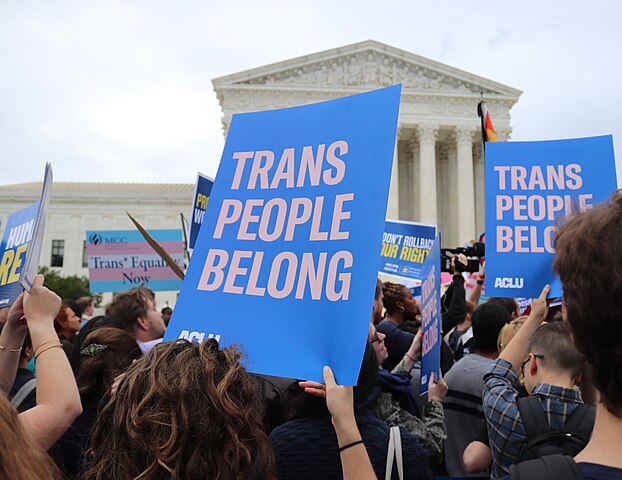Consumer Financial Protection Bureau (CFPB): Lenders Cannot Discriminate Based on Sexual Orientation or Gender Identity
Today, the Consumer Financial Protection Bureau (CFPB) issued an interpretive rule clarifying that the prohibition against sex discrimination under the Equal Credit Opportunity Act (ECOA) and Regulation B includes sexual orientation discrimination and gender identity discrimination. This prohibition also covers discrimination based on actual or perceived nonconformity with traditional sex- or gender-based stereotypes, and discrimination based on an applicant’s social or other associations.
“In issuing this interpretive rule, we’re making it clear that lenders cannot discriminate based on sexual orientation or gender identity,” said CFPB Acting Director David Uejio. “The CFPB will ensure that consumers are protected against such discrimination and provided equal opportunities in credit.”
In 2016, in response to an inquiry from Services & Advocacy for GLBT Elders, the CFPB indicated that the law supports arguments that the prohibition against sex discrimination also affords broad protection from discrimination based on an applicant’s sexual orientation and gender identity under ECOA. On June 15, 2020, the U.S. Supreme Court issued a landmark decision in Bostock v. Clayton County, Georgia, 140 S. Ct. 1731, 207 L. Ed. 2d 218 (2020), holding that the prohibition against sex discrimination in Title VII of the Civil Rights Act of 1964 encompasses sexual orientation discrimination and gender identity discrimination. On July 28, 2020, the CFPB issued a Request for Information (RFI) to solicit public comments and information to identify opportunities to prevent credit discrimination and encourage responsible innovation under ECOA and Regulation B. Among the questions posed, the CFPB asked whether the Bostock decision should affect how the CFPB interprets ECOA.
Above: PROTECT LGBTQ WORKERS RALLY in front of the United States Supreme Court along 1st Street and between Maryland Avenue and East Capitol Street, NE, Washington DC on Tuesday morning, 8 October 2019 by Elvert Barnes Photography, Wikipedia
The CFPB is issuing today’s interpretive rule consistent with the Supreme Court’s Bostock decision and supported by many of the public comments received in response to the ECOA RFI. The CFPB will review its publications and examination guidance documents and, if needed, update these and other materials to reflect this interpretive rule. And, where appropriate, the CFPB will take enforcement action under ECOA to hold financial institutions accountable for their actions that violate ECOA. The CFPB also looks forward to working with Congress on the Equality Act, which, if enacted, would codify protections for consumers against sexual orientation and gender identity discrimination in all financial products and services.
To read the interpretive rule click here.
More Articles
- UC Berkeley Chancellor Carol Christ: ‘I always felt like a pioneer’
- Statement by Canada's Prime Minister Justin Trudeau on National Indigenous History Month
- Jill Norgren Reviews Women’s Liberation!: Feminist Writings That Inspired a Revolution & Still Can
- Kaiser Family Foundation (KFF), February 8th: This Early Stage of the COVID-19 Vaccine Roll-Out, Most Older Adults Have Not Yet Been Vaccinated As Supply Remains Limited
- Ferida Wolff's Backyard, Appreciating The American Garden: Our Country's Cactus; A Ride to Nowhere; Day Lilies and Deer
- United States Settles Disability Discrimination Case Involving Residents and Prospective Residents of a Senior Housing Community
- Weekly National Summary of Week 50: Outpatient Illness Surveillance, Geographic Spread, Mortality Surveillance
- 4.7 Million Uninsured People Nationally Could Get a No-Premium Bronze Plan in the ACA Marketplace, Though Deductibles Would be High
- Congressional Bills Introduced & Hearings: Child Care at Vet Centers, Child, Dependent Care Tax Credit, Safe Contraception, Climate Change, Parental Leave Benefits, Maternal Mortality, Child Sexual Abuse
- Dreading the Doctor’s Office: An Interview With the Author of Invisible Visits; Black Middle-Class Women in the American Healthcare System






